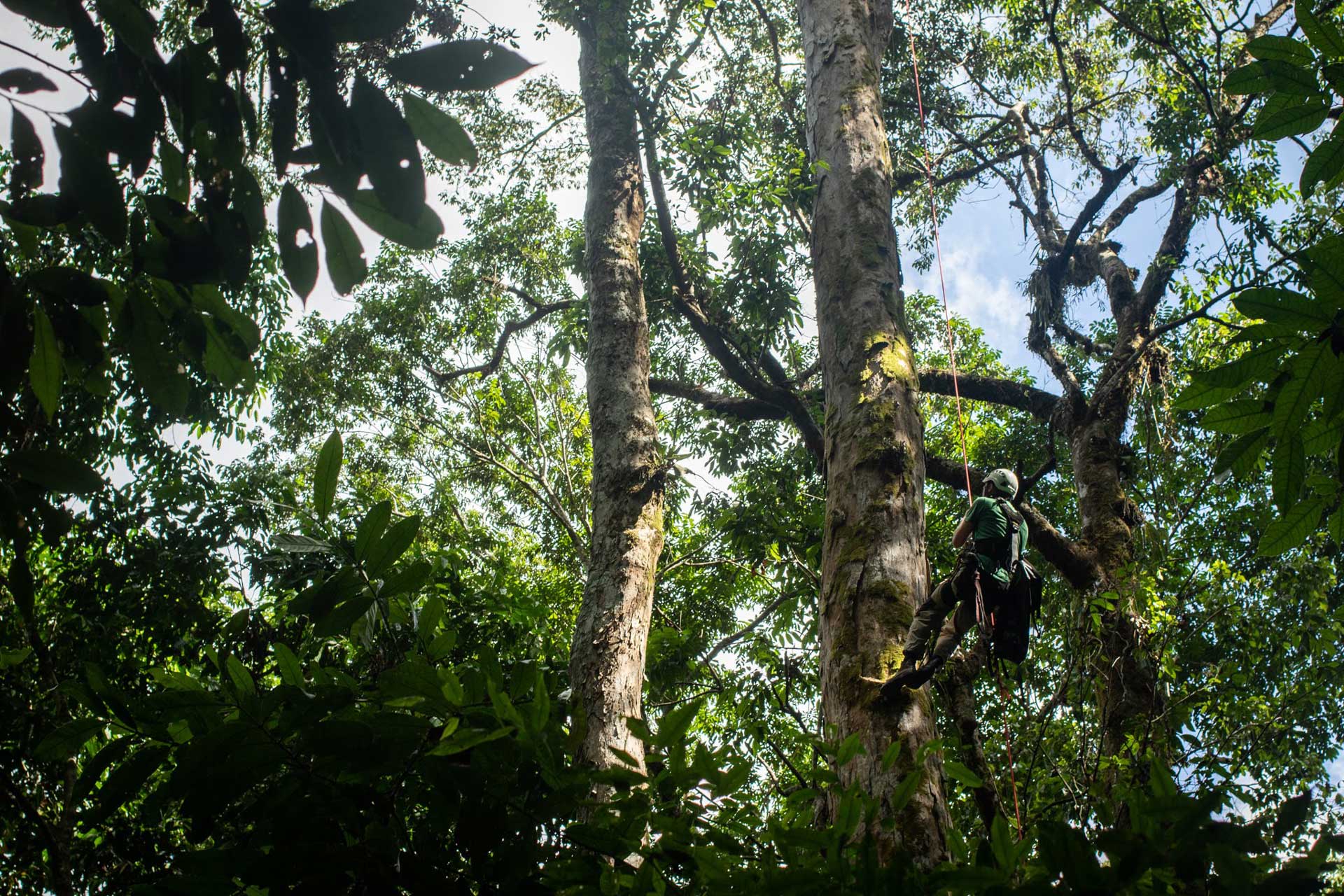
Myroxylon balsamum
Myroxylon balsamum
Bálsamo, Bálsamo del Perú, Chirraca, Sándalo
Audio
English Audio
Audio en Español
Plant Story
This species reaches up to 45 meters high and grows in humid forests. Its light brown bark has large lenticels, and its leaves are glossy and with translucent spots that are easily seen against the light. Its white flowers are likely pollinated by insects, and its fruits are winged, which allows them to be dispersed by the wind, despite being somewhat heavy. The species has many uses, including medicinal healing for asthma, cough, etc. Its resin is used as a flavoring, and its wood is high quality and used for cabinetmaking and more. Because of this, the tree has been logged excessively and tends to be scarce across Costa Rica, thus it is classified as endangered at the local level and its logging is now prohibited. The species is known from Mexico to Brazil; in Costa Rica,
Historia de la planta
Myroxylon balsamum It is a tree up to 45 meters high, scarce, that grows in humid and very humid forests. The bark is light brown, with large lenticels, the leaves are glossy and with translucent spots that are easily seen against the light. The flowers are white, probably pollinated by insects, the fruits are winged, which allows them to be dispersed by the wind despite being somewhat heavy. It has many potential uses, among which are flavoring, medicinal as healing, asthma, cough, etc. flavoring, resin production and its wood is of quality so it is used for cabinetmaking and others. For this reason, in some areas it has been excessively logged, which tends to be even more scarce, and in Costa Rica it has been classified as Endangered at the local level and its felling has been completely prohibited.
Plant details
Plant Information
Botanic Name:
Myroxylon balsamum
Common name(s):
Chirraca, Bálsamo, Bálsamo del Perú, Chirraca, Sándalo
Family
Fabaceae
Phenology
Flowering Months:
February, May
Fruiting Months:
March, April, May
Conservation
IUCN category:
Not evaluated / No evaluado (NE)
CITES:
Not protected / Sin protección
Interesting Links
Plant Locations
Chirraca
Plant details
Audio
English Audio
Audio en Español
Story / Historia
Plant Story
This species reaches up to 45 meters high and grows in humid forests. Its light brown bark has large lenticels, and its leaves are glossy and with translucent spots that are easily seen against the light. Its white flowers are likely pollinated by insects, and its fruits are winged, which allows them to be dispersed by the wind, despite being somewhat heavy. The species has many uses, including medicinal healing for asthma, cough, etc. Its resin is used as a flavoring, and its wood is high quality and used for cabinetmaking and more. Because of this, the tree has been logged excessively and tends to be scarce across Costa Rica, thus it is classified as endangered at the local level and its logging is now prohibited. The species is known from Mexico to Brazil; in Costa Rica,
Historia de la planta
Myroxylon balsamum It is a tree up to 45 meters high, scarce, that grows in humid and very humid forests. The bark is light brown, with large lenticels, the leaves are glossy and with translucent spots that are easily seen against the light. The flowers are white, probably pollinated by insects, the fruits are winged, which allows them to be dispersed by the wind despite being somewhat heavy. It has many potential uses, among which are flavoring, medicinal as healing, asthma, cough, etc. flavoring, resin production and its wood is of quality so it is used for cabinetmaking and others. For this reason, in some areas it has been excessively logged, which tends to be even more scarce, and in Costa Rica it has been classified as Endangered at the local level and its felling has been completely prohibited.
Plant Information
Botanic Name
Myroxylon balsamum
Common name(s)
Bálsamo, Bálsamo del Perú, Chirraca, Sándalo
Family
Fabaceae
Phenology
Flowering Months
February, May
Fruiting Monts
March, April, May
Conservation
IUCN category
Not evaluated / No evaluado (NE)
CITES
Not protected / Sin protección
Interesting Links
Plant Locations
Post A Comment
You must be logged in to post a comment.








No Comments